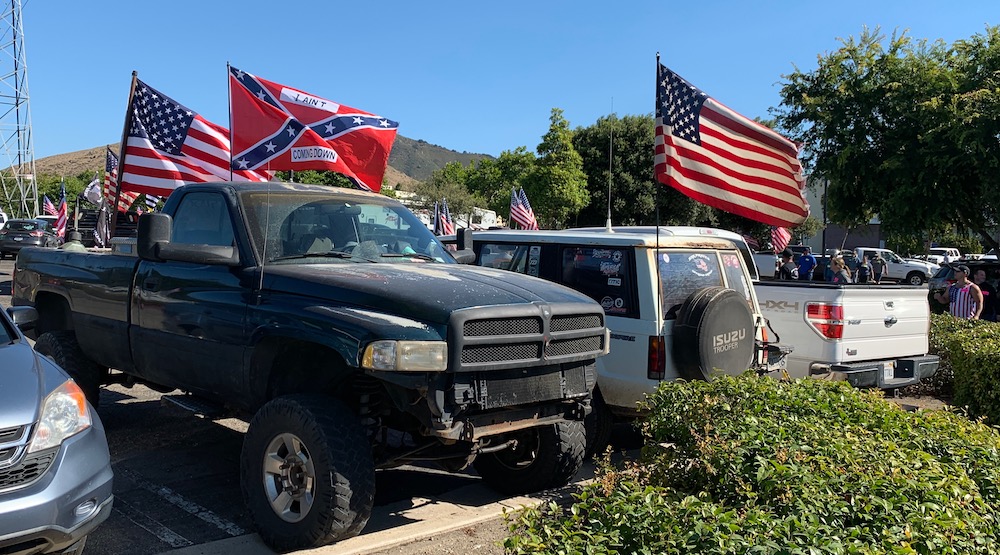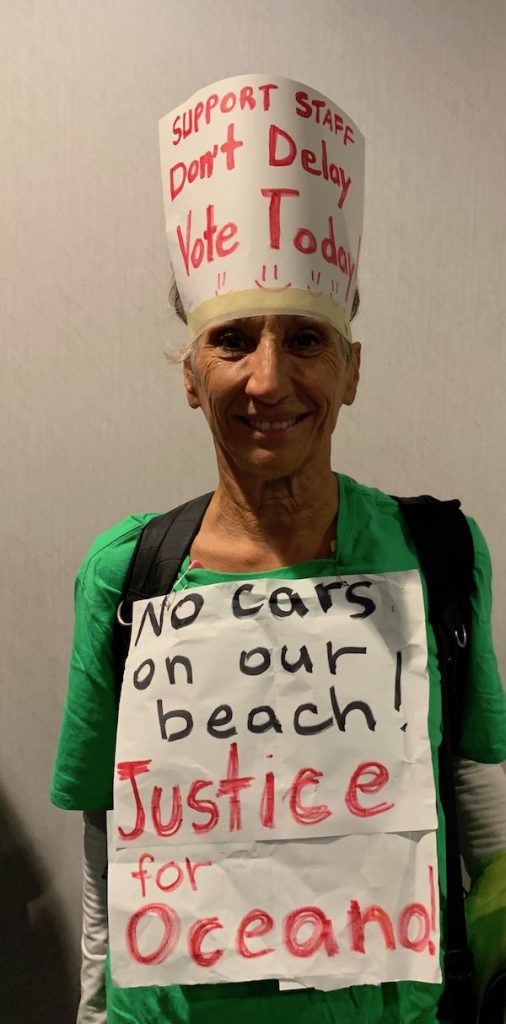
Prefer an audio version? Check it all out via our latest Protect & Enjoy podcast episode!

Wowza, last week’s California Coastal Commission meeting manifested as expected and then some.
A number of controversial items dominated the agenda over the three days of hearings in San Luis Obispo with Oceano Dunes being at the top of that long list. At hand, several conditions recommended by Commission staff that would require California’s Department of Parks and Recreation (Parks) to better protect people, animals, habitat and air quality, all of which suffer greatly due to Oceano Dunes State Park’s long history as an off-road vehicle (ORV) mecca.

For decades Parks has failed to enforce its own rules and regulations, and the community and creatures have been paying the price: the area has some of the worst air quality in the nation and dune buggies regularly crush snowy plovers under their tires while tearing up the dunes. Additionally, the people who live in Oceano are unable to enjoy the sort of restorative recreational experience most of us take for granted in California due to their beach being, in essence, a highway.

But ORV enthusiasts consider driving on Oceano Dunes a de facto right instilled by generations of doing so – and they showed up by the hundreds to fight against Commission staff’s recommendations. By 7 a.m., trucks sporting American and Confederate flags greeted people driving into the Embassy Suites parking lot and the line for public comment stretched through the lobby and around the building.

On one side, public health advocates and environmentalists. On the other, ORV fans sporting “Make Pismo Great Again” T-shirts. Tension ran, to put it mildly, high. Inside the meeting room, representatives from Surfrider’s San Luis Obispo chapter, along with HQ staff Delia Bense-Kang and your truly, waited for a chance to speak as Commission Chair Dayna Bochco repeatedly warned the audience to stop clapping, yelling and jeering, and police officers stood by in case violence erupted – a possibility that, at times, felt likely.
Ultimately, despite the overt animosity, the two sides did not come to blows and the Coastal Commission decided to give Parks one more year to complete their public works plan – which must incorporate all the recommendations – and return it to the Commission for approval. As the two are sister agencies, the Commission’s ability to force Parks to do anything remains unknown, but for now, they’ve pledged to work together toward the common goals spelled out in Commission staff’s report.
Other Coastal Commission agenda items of interest
The City of Pacific Grove’s submitted an update to their coastal planning guiding documents (otherwise known as a Local Coastal Program or LCP). While staff generally suggested approval, they also recommended a number of revisions aimed at strengthening protections of sensitive habitat in Asilomar Dunes and specifying the definition of “existing development” as that built prior to the Coastal Act’s passage in 1977. The latter is critical because pre-Coastal Act properties are generally entitled to seawalls – which kill beaches – and post-Coastal Act are not. Commissioners voted to approve all modifications; the LCP update now returns to the Pacific Grove City Council.
Another agenda item provided an example of how pre- vs post-Coastal Act development comes into play in the context of seawalls. A section of coast in Half Moon Bay was armored under an emergency permit a few years ago in response to severe erosion. That seawall protects a pre-Coastal Act structure as well as a portion of the California Coastal Trail, but now applicants sought new armoring to protect condos and a sewer line built after 1977, using the Coastal Trail as justification. Surfrider spoke in opposition to the permit noting that once we start using the Coastal Trail as a reason to armor, the entire coast would become eligible for armoring – a terrible precedent! Fortunately the Coastal Commission agreed with Surfrider, giving us – and the coast! – a solid win.
Finally, Speaker Anthony Rendon appointed Sonoma resident Caryl Hart to a public seat on the Commission, and Governor Gavin Newsom appointed Arcata resident Mike Wilson to fill the North Coast elected seat.
